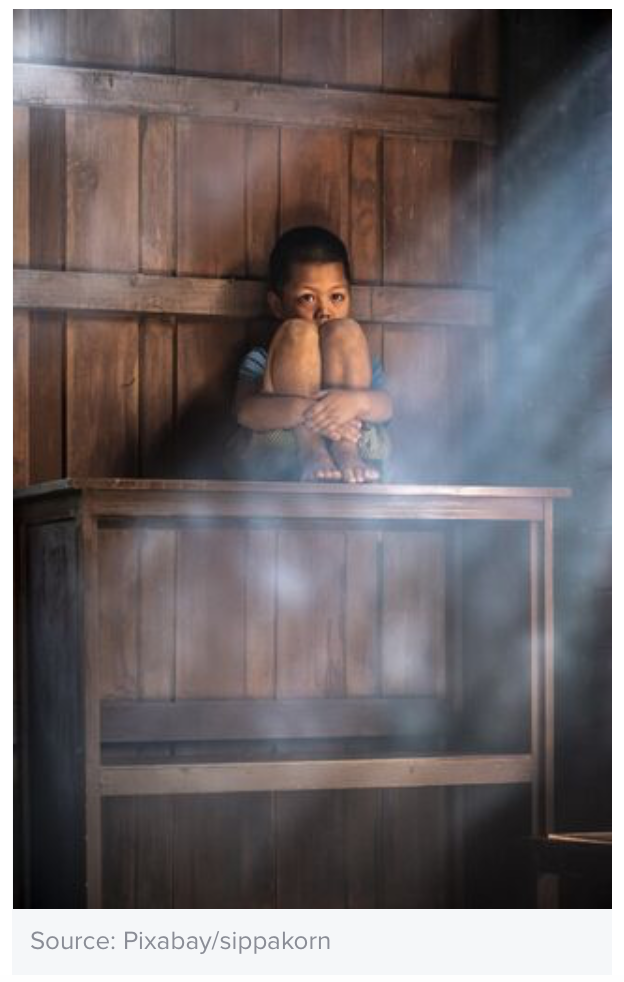Release time: 2020-09-13 14:48
Not All Childhood Abuse Results in Mental Illness
New research suggests that in predicting future mental illness, the subjective experience of child abuse may be more important than objective records of maltreatment.
Suppose, based on official court records, you were abused as a child, but you have no memory of it. Now suppose your sibling recalls being abused, but there are no official court records indicating that abuse took place. Which of you is more likely to experience a mental illness in the future?
To answer this question, we turn to a recent paper, by Danese and Widom, published in the August issue of Nature Human Behaviour. The paper suggests objective evidence and subjective experience of childhood maltreatment are not equally linked with future psychopathology and mental illness.
Investigating Childhood Abuse: Methods
The investigation by Widom and Danese used data from the second phase of an investigation on child abuse and neglect. The original sample had included 908 participants who had been, according to official records from criminal courts in the U.S., victims of childhood abuse/neglect. The comparison group—667 participants who did not have records of childhood abuse and neglect—were matched on criteria such as sex, age, ethnicity, and social class.
So, the total sample included 1,575 individuals. At a follow-up, 1,307 were contacted, of which a cohort of 1,196 (51 percent male; 63 percent White; 29 years average age; 11 years of education) took part in detailed in-person interviews.
The interviews included questions about experiences of childhood neglect, physical abuse, sexual abuse, and current and lifetime history of mental illness.
Investigating Childhood Abuse: Findings
Analysis of the data identified three groups—distinguished based on whether objective or subjective evidence of childhood abuse were reported:
Objective: Identified as victims (court records) but unable to recall the maltreatment.
Subjective: Not identified as victims (no records) but recalled the maltreatment.
Objective and subjective: Victims (court records) and recalled the maltreatment.
A comparison of these groups showed, even in the most serious cases identified based on court records, the risk for mental illness appeared “minimal in the absence of a subjective appraisal.” And the risk of psychopathology was high in those who had subjective experiences of abuse, even if there were no official records of incidents of child abuse.
This finding agrees with previous research on the same sample, which showed those at increased risk for drug abuse were mainly individuals who reported childhood victimization—not those identified as abuse victims through official records.

Conclusion: Objective and Subjective Reports of Childhood Abuse
In conclusion, it appears those who “construe their childhood experiences as maltreatment,” regardless of a documented history, have a high risk for mental illness.
We need to investigate why certain individuals develop a subjective appraisal of abuse when there is no objective evidence for maltreatment. Some areas of study include suggestibility, as well as perception and memory biases related to personality factors or previous mental illness.
And we need to understand why some abused children perceive and remember their experiences as maltreatment and others do not. Potentially relevant factors include age at abuse, the severity of the maltreatment, the intensity of suffering experienced at the time, environmental factors (e.g., social care and support), and later hardships experienced prior to the development of the mental illness.
Last, it is important we do not use the data to reach the wrong conclusions, such as assuming that abusing children is not so bad if they are not terribly affected by it subjectively (e.g., do not develop a severe mental illness), years later. As the authors note, these findings “do not diminish the significance of maltreatment in the lives of children. Maltreatment is a fundamental breach in the human rights of children and it is a moral duty to protect them from abuse and neglect.”

Arash Emamzadeh attended the University of British Columbia in Canada, where he studied genetics and psychology. He has also done graduate work in clinical psychology and neuropsychology in U.S.
psychology today